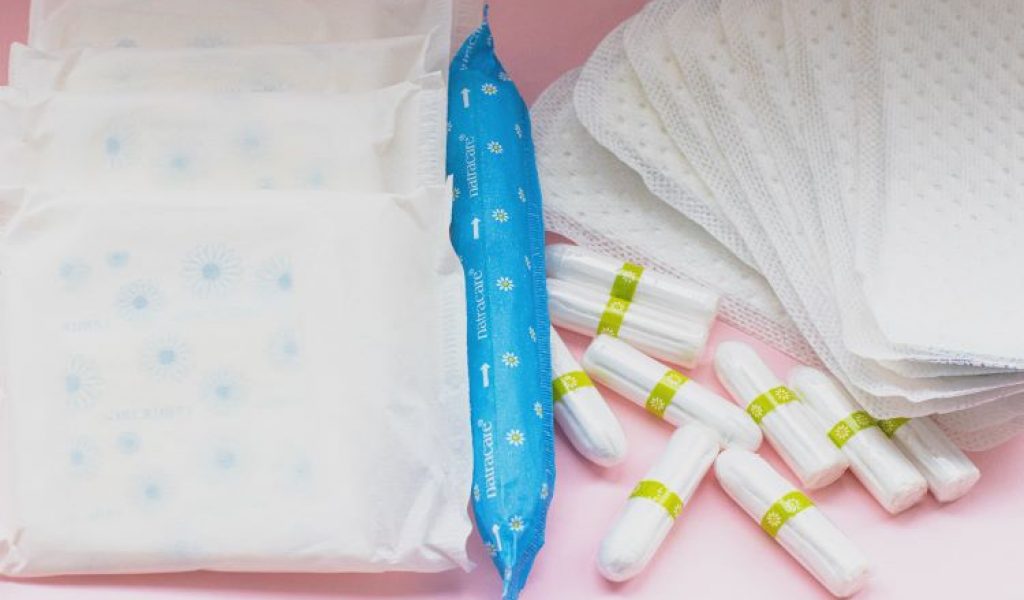Investigating period poverty at the University of Exeter

Jamie Speka talks to Berty Dudley of the Period Poverty Society and discusses the University of Exeter’s stagnant initiative to provide students with free period products.
Period poverty is the incapacity to afford or access essential period products and hygiene items, a social issue affecting menstruating individuals nationwide.
This may be especially exacerbated by the cost-of-living crisis, which has tightened the budgets of many – a recent YouGov poll suggested one in eight were likely to struggle to afford period essentials in the next year. Progress on this issue has been made, such as Scotland making all period products free, and the UK government decision last year to end the five per cent ‘tampon tax’. Additionally however, community action is needed at all levels to prevent period poverty negatively affecting wellbeing or education. So how is the University of Exeter helping to alleviate these problems faced by many of their community?
“There has to be more done than a measly period product station in a bathroom nobody knows about that isn’t even refilled,” says Kate Taylor, president of Feminist Society upon receiving an email from the Student’s Guild.
“I’m getting in touch with you as […] we have been able to work collaboratively alongside you and the university on tackling period poverty and distributing free menstrual products across the University”, an email from a Guild representative reads.
Taylor is not the only student who feels this message largely overplays the university’s efforts to publicize and effectively universalize free period products around campus.
What was once a promising indicator of a University on its way to solving an element of gender disparity is now forgotten
In an all-gender bathroom around the corner from the Ram Pub, sits an empty period poverty station. Without period products, it’s rendered useless. All product stations remain seldom restocked and unsupported despite many efforts from charity societies that have worked to get this initiative up and running.
So what has happened to this initiative? What was once a promising indicator of a University on its way to solving an element of gender disparity is now forgotten – only to be brought up in promotional notifications with the misleading message of the problem to be long cured.
The answer, so it seems, lies with funding. President of Period Poverty Society, Berty Dudley explains the impact that this funding has had on this failed initiative: “Last year, the students collaborated with the University and helped to get this rolling for about two or three months,” says Dudley. “These stations could be found primarily in about eighteen gender-neutral and disability bathrooms. Then it was just forgotten about.”
Communication with the Guild has proven difficult for Dudley. Many back-and-forth emails illustrate efforts to ignite traction for change but fail to elicit a cohesive statement as to what is going on. “We really want to know where this funding has come from in the past and where it is now. What sort of thing do student groups have to do to get funding for this project? Why is this not considered a genuine need?”
Current statistics show that 500 million individuals who menstruate lack the facilities they need to manage their periods worldwide
Period Poverty and other charitable societies alike have all pondered the same question: why is funding so hard to find for a concern that is so prevalent to a majority of students? Why must students be the ones to make this change?
Current statistics show that 500 million women and girls and all individuals who menstruate lack the facilities they need to manage their periods worldwide. This issue is worsened for those living in the Global South, with an overwhelming 65 per cent of women and girls in Kenya not having access to menstrual products. In addition, evidence indicates this issue has worsened due to poverty levels reaching an all-time high after the COVID-19 pandemic. These statistics also correspond with the thousands of people who menstruate needing to miss school in the UK alone due to inaccessibility.
Angered by these harrowing facts, Dudley wonders how such a privileged setting as a University in an affluent region of the UK cannot make moves to provide accessible products. “When countries don’t make this change that they have the resources and money for, it’s infuriating because it goes to show that there still is a stigma against natural bodies” she says.
Emails that Dudley has sent to the University have not gone unanswered. Some Guild representatives are working on cultivating permanent solutions to this underprioritised issue. Charitable societies have expressed the main concern as being a lack of communication. Whether that’s publicizing that period products are available for all those who need them; informing those who are working on this project about funding cuts or improvements; as well as acknowledging that these stations need upkeep. The Guild is sure to remind Dudley that this problem will soon be remedied.
“I don’t want to be so pushy with the Guild because they can only do so much. Even if they are trying to push it forward – which it seems they are – the funding ultimately comes from the top,” Dudley comments.
Beyond the funding, within the microcosm that is Exeter University, period poverty still persists
While the Guild does have more leverage in moving initiatives along, those who provide the funding are the key to support when it comes to University changes. Those who are responsible for parsing out funding to different sectors have a tremendous amount of say in how much growth this project can have.
Beyond the funding, within the microcosm that is Exeter University, period poverty still persists. Even in the most privileged of spaces, it is still taking far too long and far too much gridlock to solve an issue that affects all people who menstruate – which is the majority of the University. What will it take for larger institutions to begin making the change?


